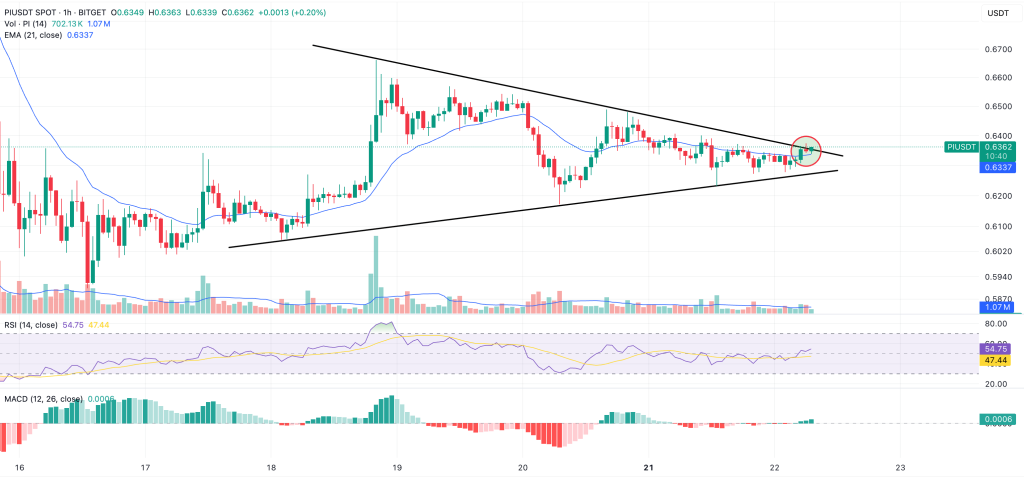The U.S. dermatology market is at a financial crossroads. With a projected growth from $40.55 billion in 2023 to over $70 billion by 2030, the increasing prevalence of psoriasis and the accompanying surge in demand for treatment are about to make their mark. For employers, particularly those managing self-funded benefit plans, this raises key questions—and concerns. Will the soaring demand for psoriasis treatments increase costs to unsustainable levels? Alternatively, could this serve as the springboard for biosimilars to finally deliver on their much-promised potential for cost containment?
Psoriasis, an autoimmune disease that causes scaly plaques on the skin, affects more than 7.5 million Americans. Classified as a chronic condition, its treatment often requires high-cost specialty drugs that are typically lifelong necessities. Current industry data reveals that immunology drug use, driven partly by psoriasis therapy, increased by 60% from 2019 to 2023. Unsurprisingly, psoriasis is poised to become the fastest-growing segment in the dermatology space over the next decade. At least 10 specialty drugs are currently approved to treat psoriasis, with many more in the pipeline.
And according to Iqvia’s annual report of medication use trends in the U.S., utilization of psoriasis drugs was second only to Crohn’s disease among autoimmune conditions in 2023, comprising 15% of all spending.
For plan sponsors, this poses a real challenge. With the annual cost of psoriasis treatment drugs like Stelara and Tremfya exceeding $160,000 per patient, even rebates and co-pay assistance programs may barely offset the financial burden. The challenge for employers is not just covering the cost of the treatment but doing so in a way that allows them to keep offering sustainable benefits.
Lessons from Dupixent’s dominance
A look back at Dupixent’s launch in 2017 offers valuable lessons. Sold for roughly $37,000 annually upon its release, Dupixent transformed the pharmaceutical landscape for moderate-to-severe eczema treatment. Its aggressive advertising, combined with expanded indications into asthma and chronic obstructive pulmonary disease (COPD), solidified its role as a blockbuster drug. Today, psoriasis therapeutics are following a similar trajectory, with an influx of specialty drugs targeting broader indications, from Crohn’s disease to ulcerative colitis.
This pattern raises an important question for stakeholders in the healthcare industry: Are we prepared for the long-term affordability challenges of these high-priced drugs? Or will current market mechanisms, such as biosimilars, become the saving grace for benefit-plan sponsors?
The biosimilar conundrum
To date, biosimilars for legacy drugs like Humira have struggled to gain traction despite their potential to lower costs and increase accessibility. Manufacturer rebate agreements and long-term contracts with preferred formularies have been persistent barriers. However, the tide may be shifting. In 2024, CVS Caremark and Express Scripts removed Humira from preferred formularies in favor of biosimilars, marking a promising pivot in strategy toward cost efficiency.
That said, challenges remain. Employers must be proactive in driving adoption efforts by revising plan designs and working to prioritize biosimilars for eligible patients. Without dedicated oversight, biosimilars will continue to face an uphill battle against the entrenched interests of branded medications.
See also: GLP-1s: To cover, or not to cover, these weight management drugs?
What employers can do
Benefit-plan sponsors looking to manage costs associated with the growing demand for psoriasis treatments should consider the following strategies:
1. Robust clinical oversight
Work with independent, human-led clinical management teams to ensure that prescriptions are carefully evaluated. Only the most clinically appropriate and cost-efficient drugs should reach patients.
2. Plan design optimization
Implement step-therapy protocols to encourage the use of lower-cost biosimilars and generics before approving specialty medications. This not only saves costs but ensures better alignment between patient needs and appropriate drug use.
3. Consumer and prescriber education
Increased awareness can drive better decision-making. Employers should prioritize resources that inform both prescribers and members about the clinical equivalency and cost benefits of biosimilars over branded treatments.
4. Monitor emerging drugs
The drug pipeline for psoriasis suggests that newer treatments, like bimekizumab and JAK inhibitors, are on the horizon. Understanding these developments can help sponsors anticipate costs and decide when generic alternatives or alternative therapies may be viable.
A more sustainable future for psoriasis treatments
We have seen this phenomenon before—most recently, with the GLP-1 drug class, which emerged seemingly out of nowhere to become blockbusters, putting significant strain on pharmacy plan bottom lines. Psoriasis therapy doesn’t have to follow the same path. With proactive strategies and the right partnerships, plan sponsors can effectively manage costs while ensuring patient access to life-changing medications.
The question remains: Will we see biosimilars fully realize their promise to reduce healthcare costs? For every payer, patient and employer impacted by the escalating costs of psoriasis therapy, it’s time to find out. Implementing smarter, value-driven plan designs with careful clinical management to ensure appropriateness today can lead to lasting savings tomorrow.
Credit: Source link










